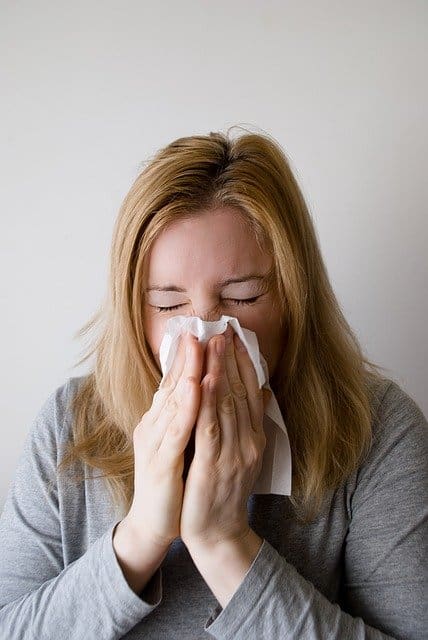Allergic rhinitis or hay fever is the inflammation of the inner lining of the nose caused by an allergen, such as pollen, dust, mold, or flakes of skin from certain animals and results in a runny nose, itching, and sneezing. The immune system of our body reacts with the allergen by releasing histamine and chemical mediators that typically cause symptoms in the nose, throat, eyes, ears, skin, and roof of the mouth. When a person’s immunity is weak, the allergens enter the nasal passages and cause irritation and inflammation. Allergic Rhinitis can be permanently resolved with several ayurvedic and natural treatments through dietary, lifestyle adjustments and by strengthening the immune system.
Allergic rhinitis can happen on a seasonal basis or year-round. The two types of allergic rhinitis are seasonal and perennial. Seasonal allergies usually occur during the spring and Autumn season and are typically in response to outdoor allergens like pollen. Perennial allergies can occur year-round, or at any time during the year caused by indoor substances, like dust mites and pet dander. Perennial or Year-round allergic rhinitis happens more often in younger children. According to the American Academy of Allergy, Asthma & Immunology (AAAAI), nearly 8 percent of adults in the United States experience allergic rhinitis of some kind. In the UK, it’s a very common condition, estimated to affect around 1 in every 5 people. Between 10 and 30 percent of the worldwide population may also have allergic rhinitis.
Symptoms of Allergic Rhinitis
Hay fever symptoms tend to flare up in the spring and fall. Perennial allergic rhinitis symptoms are year-long.
Symptoms of allergic rhinitis include:
-
Itching in the nose, roof of the mouth, throat, or eyes.
-
continues heavy sneezing
-
stuffy nose (congestion) or runny nose
-
watery eyes
-
Dark circles under the eyes
-
Coughing
-
Frequent sinus headaches and heaviness
-
Fatigue and irritability
-
Plugged ears and decreased sense of smell
- Hives and eczema
Some symptoms usually start soon after coming into contact with an allergen. Some symptoms, such as recurrent headaches and fatigue, may only happen after long-term exposure to allergens. Some people only get allergic rhinitis for a few months at a time because they’re sensitive to seasonal allergens, such as tree or grass pollen. Other people get allergic rhinitis all year long.
(Also read: Nasal Polyps and its Ayurvedic and Natural Treatments)
Causes of Allergic Rhinitis
When your body comes into contact with an allergen such as pollen, dust, and certain animals, it releases a natural chemical, histamine that defends your body from the allergen. Histamine, causes dilation of blood vessels, skin redness, and swollen membranes and leads to symptoms of so-called allergic rhinitis including a runny nose, sneezing, and itchy eyes.
- Seasonal allergic rhinitis mainly occurs in the Spring and Fall season, most often caused by outdoor allergens which are carried in the air. Perennial Rhinitis can occur anytime during the year and is mostly caused by indoor substances like house paints, sprays, or dust mites. Few other factors like temperature fluctuations, sudden onset of cold, humidity, exposure to cigarette smoke, hairspray, perfumes, colognes, wood/coal smoke, or fumes trigger or worsen allergic rhinitis.
- Allergens in the house can cause allergic rhinitis such as flakes of skin or droplets of urine or saliva from certain animals, mold spores, droppings from house dust mites, and cockroach particles. This is called perennial allergic rhinitis, as symptoms typically occur all year-long.
- Molds growing on wallpaper, upholstery, carpeting, and house-plants are also allergens.
- Plants that cause hay fever are trees (like hazel, pine, chestnut, and olive have allergic pollens), grasses, and ragweed. Their pollen is carried in the air. Types of plants that cause hay fever differ from person to person and from place to place. Grass allergies are often seen more in the late afternoon, and mold spores may peak on dry windy afternoons or on damp or rainy days in the early morning.
- Wrong food combinations also lead to allergies.
- Long-Term use of aspirin may lead to depleted immunity and make the person prone to dust allergies.
- Hay fever and allergies often run in families. If both of your parents have hay fever or other allergies, you are more likely to have hay fever and allergies, too. The chance is higher if your mother has allergies.
Many people with allergic rhinitis are prone to allergic conjunctivitis(eye allergy). Also, allergic rhinitis can make symptoms of asthma worse for people who suffer from both conditions.
(Also Read: SEBORRHEIC DERMATITIS AND ITS TREATMENTS)
Treatment for Allergic Rhinitis
Ayurvedic Treatment
Ayurveda is a safe effective and permanent cure for Allergic Rhinitis. From an Ayurvedic perspective, it is caused due to accumulation of toxins or ‘ama’ present in the body and also due to low immunity and weak digestion. Accumulated ama aggravates the levels of Kapha (Water) in the body, that ultimately results in allergies. Ayurveda treatment involves clearing the sinuses and expelling phlegm that leads to balance the three doshas present in the body and treating the root cause of the disease.
1) Guduchi (Tinospora cordifolia)
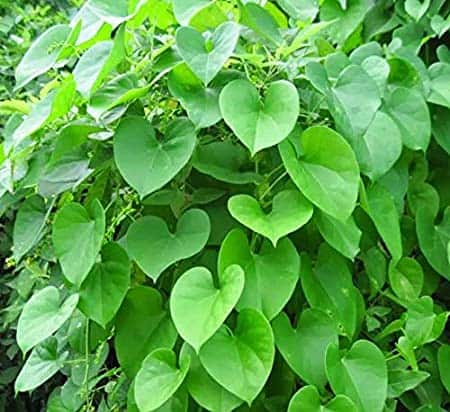
Guduchi is a popular medicinal herb used in Ayurvedic medicine for the relief of allergies and other ailments. Few scientific studies have proven that the herb’s potential to manage and treat common allergies (seasonal allergic rhinitis) reduced itching, sneezing, and nasal discharge. Guduchi powder can be taken with milk, honey, buttermilk, or warm water as advised by the physician.
2) Turmeric (Curcuma longa)
Turmeric contains the substance called curcumin, a powerful antioxidant and anti-inflammatory agent with immune-boosting properties. Curcumin is found to be as effective as many steroidal and non-steroidal conventional medications. It can help reduce symptoms of allergic rhinitis like congestion, cough, dry mouth, and sneezing and inhibit the release of histamine.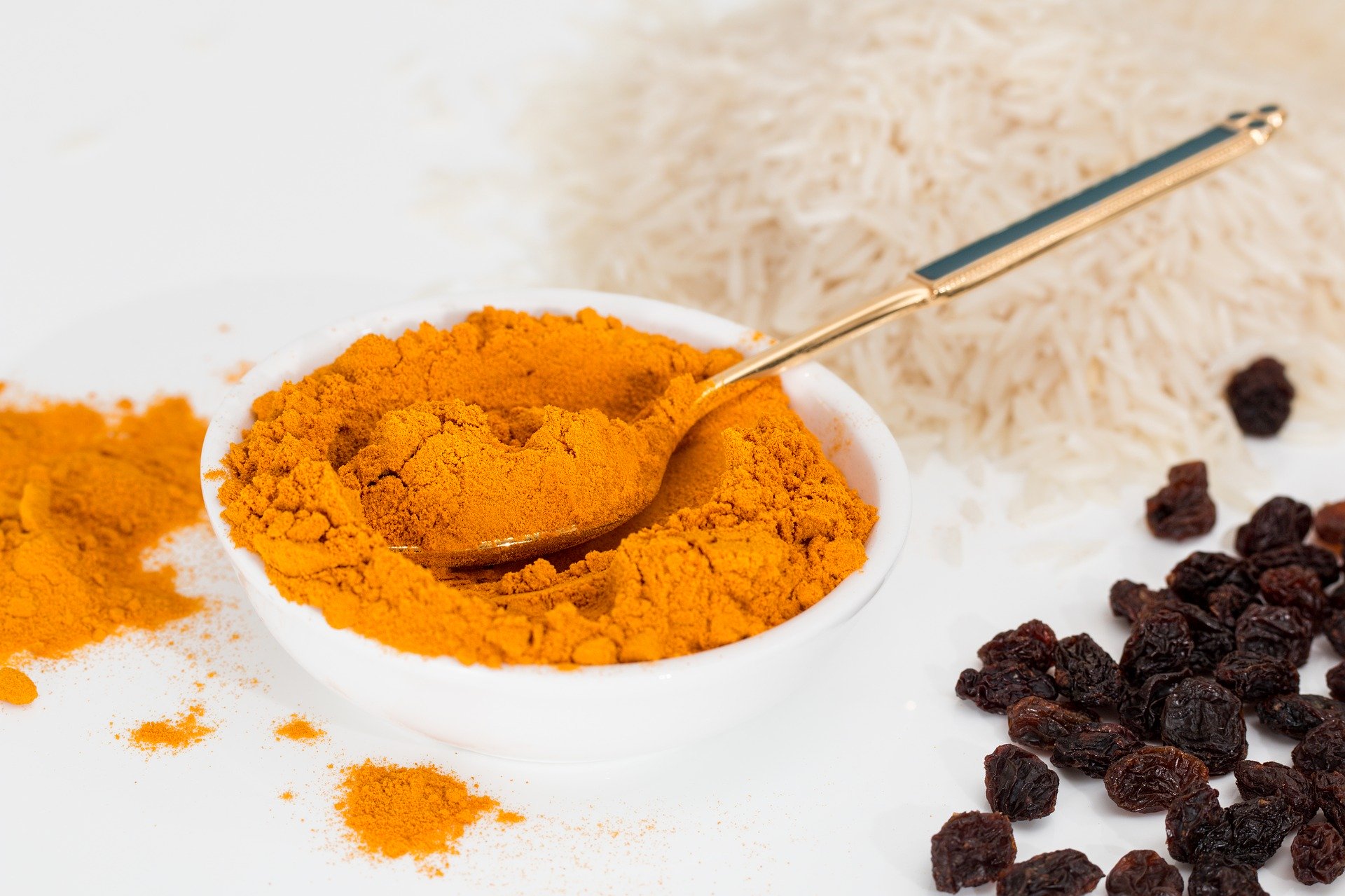
- Prepare a mixture with 6 tablespoons each of turmeric powder and raw honey. Mix well and place it in an air-tight container. Take 1 teaspoon of this mixture 2 times daily during the allergy season.
- Also, drink 1 glass of warm turmeric milk daily to boost your immune system.
- You can also add turmeric to your daily cooking or take turmeric supplements after consulting your doctor.
3) Ginger (Zingiber officinale)
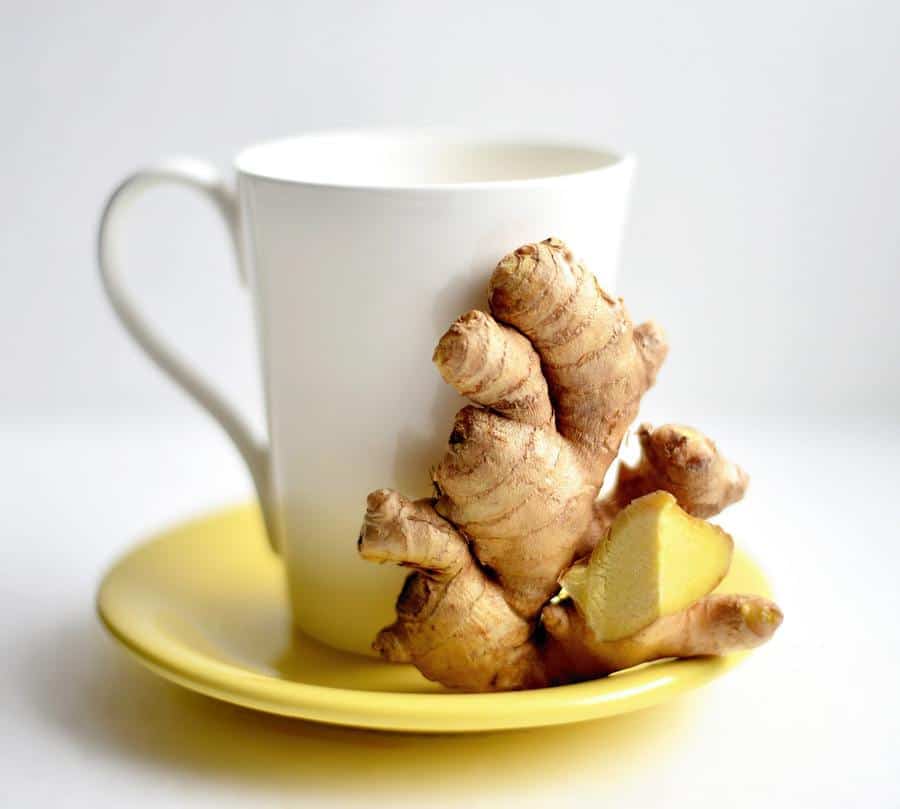
Ginger is a safe and highly effective home remedy for allergic rhinitis. Ginger works as a natural antihistamine and has antiviral, antibacterial, anti-inflammatory, and immune-boosting properties that help relieve rhinitis symptoms like nasal congestion, runny nose, cough, and even headache.
- Boil 1 tablespoon of grated ginger or ginger powder, a few cloves, and a small piece of cinnamon to 1 cup of water for 5 minutes. Strain and add a little honey and lemon juice. Drink this herbal tea up to 3 times daily during the allergy season.
- Also, chew fresh ginger pieces several times a day and try to include ginger in your cooking.
- Boil half a teaspoon of freshly grated ginger in milk. Add ¼ teaspoon of turmeric powder. Take 2-3 times a day to relieve rhinitis symptoms.
- To prepare a decoction: Boil half a teaspoon of licorice root powder, ¼ teaspoon of black pepper powder, 1 tsp freshly grated ginger along 10 fresh basil (Tulsi) leaves in a cup of water. Reduce it to half the quantity. Drink this lukewarm liquid in the morning and evening by adding a pinch of sugar (optional).
4) Garlic
Garlic contains a compound called quercetin, a natural antihistamine that can be very effective in treating allergic rhinitis. Also, garlic has antibiotic, antibacterial, antiviral, and immune-boosting properties that help to recover quickly.
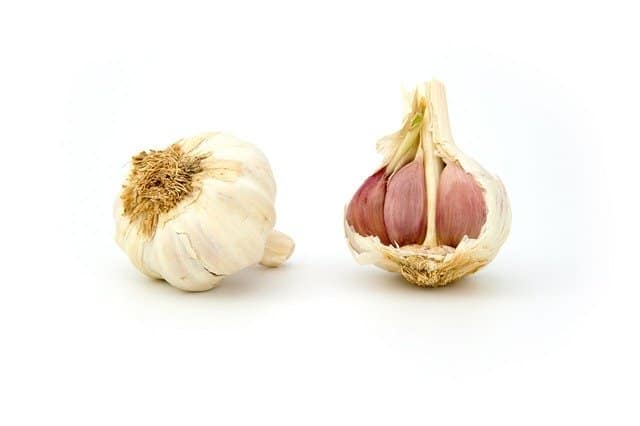
- Chew 2 to 3 raw garlic cloves daily to relieve the symptoms of allergic rhinitis.
- Also include garlic powder or raw garlic in cooking.
- It’s also available in supplement form. People with a history of allergies can consume garlic supplements daily during the allergy season. Consult your doctor before taking any supplement
5) Stinging Nettle
Stinging Nettle is one of the most effective herbal treatments for allergic rhinitis. The herb is rich in vitamin K, quercetin, and carotene. It’s used as an alternative medicine for treating seasonal allergies. Stinging nettle has been used as an antihistamine and anti-inflammatory agent and can provide quick relief from symptoms like nasal congestion, coughing, sneezing, and itching. Stinging nettle leaves can be used in tea, capsule, or tincture form. A daily dosage of 300 mg to 500mg of stinging nettle extract could provide relief from allergy symptoms.
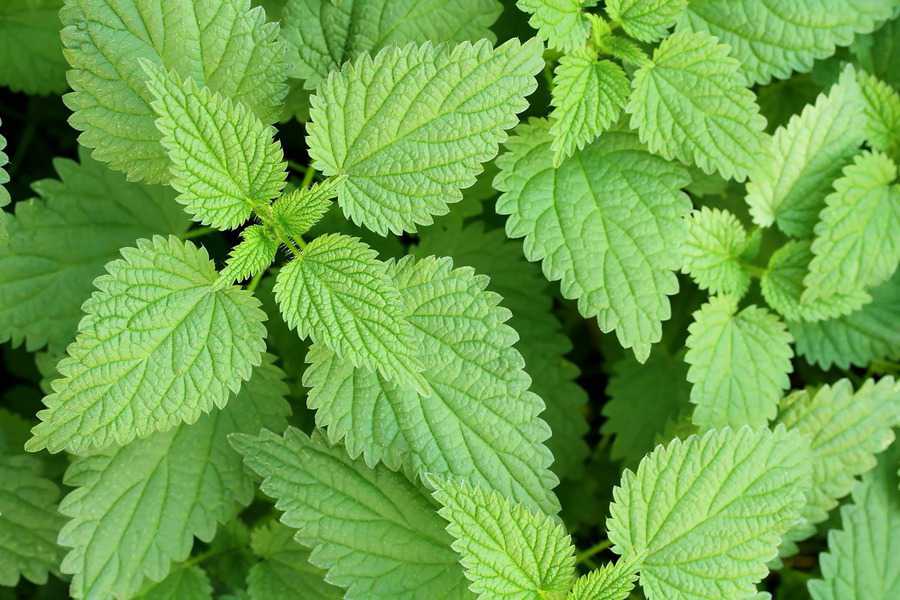
- Add 1 tablespoon of dried stinging nettle leaf to a cup of hot water. Boil it for 5 minutes. Strain and add a little honey. Drink it 2 or 3 times daily until you relieve from the allergy symptoms.
- Cooking the leaves will remove their stinging effects, and you can add them to your salads, soups, or stews, like most other green leafy vegetables.
- You can also take a stinging nettle supplement for a week. Always consult your doctor before starting any treatment as this herb may interfere with your other medications.
Note: Stinging nettle is not recommended for pregnant women and young children.
6) Butterbur
Butterbur is a marsh plant that grows in North America, Europe, and Asia used traditionally for the treatment of pain, headache, fever, Nasal Polyps, sinus-related issues which are caused due to allergies, treats inflammation in sinusitis, migraine, and in asthmatic patients. More recently, it has also been used for urinary tract infections, digestive ailments, as well as for the treatment of hay fever.
Research has shown that it might help in lowering the intensity and frequency of migraine attacks, and effective in treating nasal polyps. It is not recommended for children, pregnant or nursing women and people with kidney and liver disease. Butterbur can be taken as an oil extract, supplements or in pill form.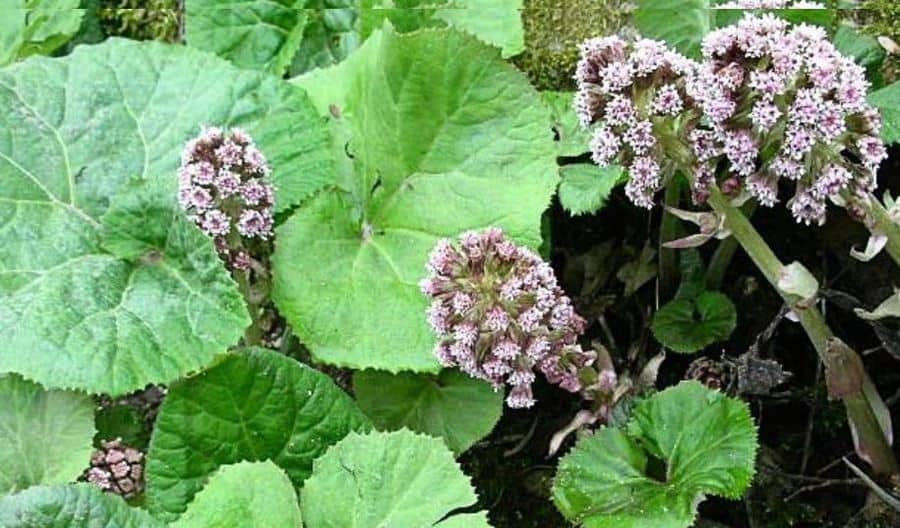
As an herbal tea:
Put 1 teaspoonful of the root in a cup of water and bring to a boil. Simmer for 10-15 minutes. Drink the tea three times a day.
As a tincture:
Take 1- 2 ml of the tincture three times a day.
7) Bromelain
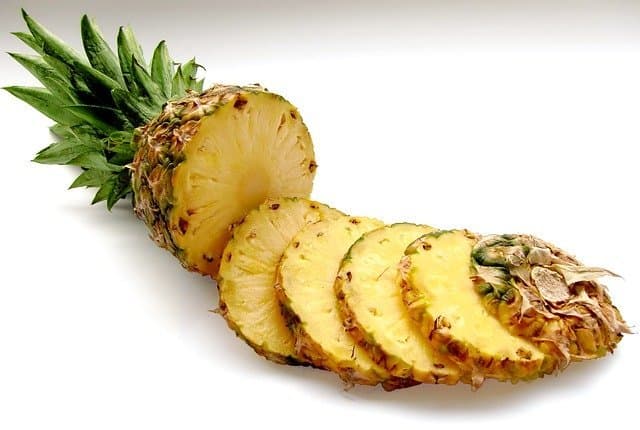
Bromelain is a compound, a natural enzyme most commonly found in pineapples. Bromelain has been shown to be effective at treating respiratory distress and to reduce inflammation in the nasal passages and lessen the production of mucus due to its anti-inflammatory properties. This indicates that the enzyme might be useful as a treatment for hay fever, asthma, and allergies. A dosage of 400 to 500 mg three times daily is recommended.
8) Quercetin
Quercetin is an antioxidant found naturally in onions, apples, kale, berries, cherries, Ginkgo biloba (medicinal herb) and parsley with strong anti-inflammatory properties. Research indicates that quercetin is a very effective treatment for allergic rhinitis. Quercetin inhibits the production and release of histamine and other allergic and inflammatory substances, by stabilizing cells. Onion is nature’s version of an anti-histamine. Quercetin also acts as a bronchodilator, opening up airways and helping you breathe easier. Taking quercetin for at least 5 consecutive days can relieve sneezing and nasal itching. You can take quercetin as a supplement or simply add more quercetin-rich foods to your diet.
(Also Read: 11 Foods that boost our Immune system naturally)
Natural and Home Remedies for Allergic Rhinitis
Rhinitis Cure
1) Nasal Irrigation
The prime step to treat allergic rhinitis is to remove mucus from the nose by using saline nasal wash. A Study shows regular nasal saline rinse can improve symptoms of allergic rhinitis. Nasal irrigation with the help of a Neti Pot is considered an effective solution to sinus or allergy treatments.
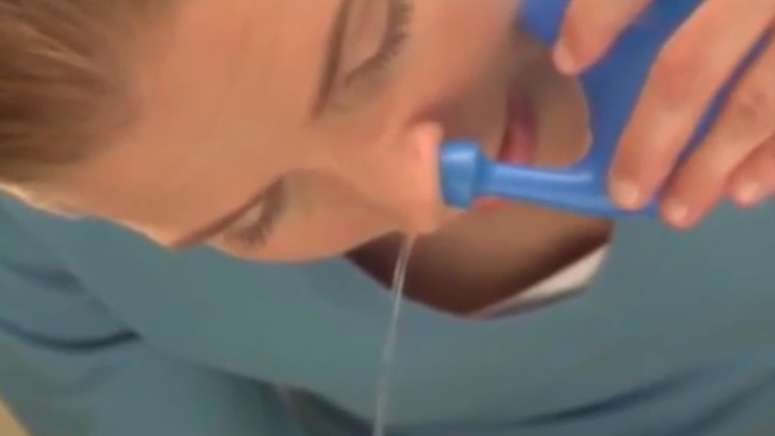
Mix 1 teaspoon of salt and a pinch of baking soda in 2 cups of warm distilled water. Make sure that the salt completely dissolves in the water. Close the pot, and tilt your head sideways and run the solution through one nasal passage and allow the water to flow through. The water will begin to drain out from the opposite nostril. Repeat the entire process to irrigate the other nostril and sinus cavity. Make sure to keep your mouth open while doing this and do not hold the breath. After completing the process in each nasal passage, blow your nose gently, to keep the airways clean. Repeat this remedy a couple of times daily until your condition improves.
You can also purchase a saline solution at a drug store and use it in the same manner.
2) Steam Inhalation
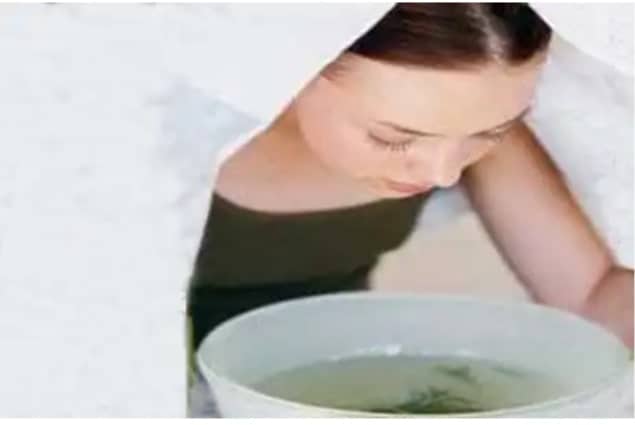
Steam Inhalations help clear the nasal passages and loosen the mucus secretions caused by the congestions. This will help to get rid of allergic rhinitis symptoms, such as sneezing, runny nose, and sore throat. To get better results, add essential oils like peppermint, rosemary, tea tree oil, and eucalyptus. For small children who cannot inhale steam, a hot shower or bath will help a lot.
3) Nettle-Peppermint Tea
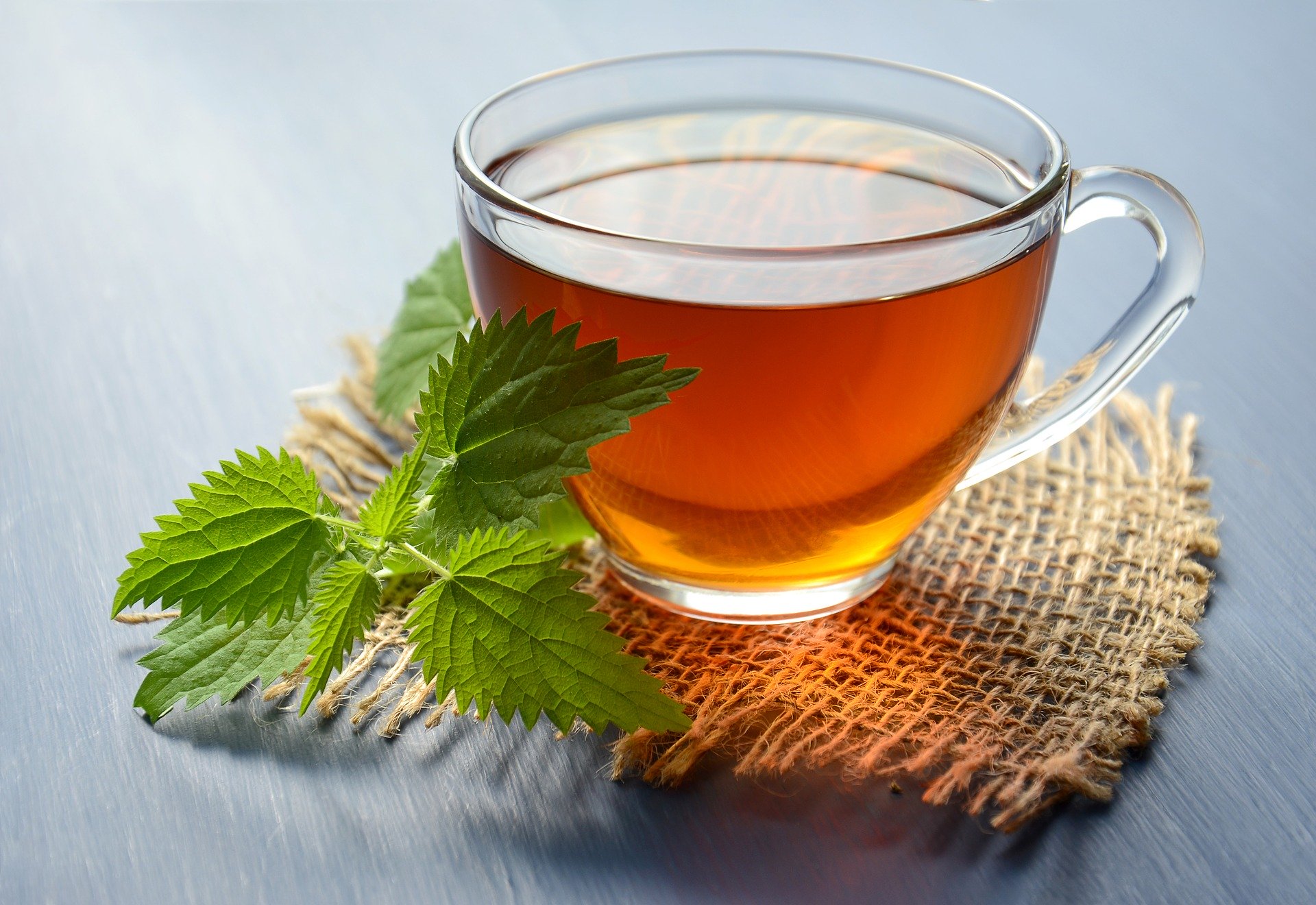
This traditional herb is used for relieving the symptoms of allergies and the tea helps in lowering blood pressure, relieving arthritis, and fighting seasonal allergies. The flavonoid present in the peppermint helps inhibit the activity and secretion of anti-inflammatory enzymes, histamine. To make this tea add a dash of raw honey and turmeric.
4) Oil Pulling
Oil pulling is an ancient Ayurvedic technique that removes toxins in the mouth, gums keeping healthy oral hygiene. It helps to draw out irritants and harmful toxins from within your body that cause allergic rhinitis.

-
- Put 1 tablespoon of sesame oil or coconut oil in your mouth.
- Swish and pull the oil in the mouth, all-around your mouth for 15 to 20 minutes.
- Spit out the oil, then rinse your mouth with warm water.
- Do this daily in the morning on an empty stomach before brushing your teeth. Do not swallow the oil as it can be filled with toxins after this process.
5) Probiotics
Probiotics are healthy bacteria found in foods, drinks and supplement forms that can help in the treatment and prevention of hay fever. Studies indicated that probiotics (Lactobacillus acidophilus) may help improve symptoms of allergic rhinitis.
- Buy a high-quality probiotic supplement that has 1 to 4 billion organisms per capsule. Take one capsule in the morning and one in the evening for 1 to 2 weeks.
- Take probiotic yogurt on regular basis to boost your immune system.
(Also Read: Health Benefits of Probiotics)
6) Vitamin C
Vitamin C helps in fighting seasonal allergies by boosting your immune system due to its antihistamine properties.

- Eat foods high in vitamin C like lemons, oranges, broccoli, grapefruit, kiwi, bell peppers, potatoes, strawberries, sprouts, and tomatoes.
- Take 2,000 milligrams of vitamin C supplement daily, upon consulting your doctor.
Additional Tips
- Eliminate alcohol, caffeine, and dairy products from your diet for a few days.
- Wear a simple mask when going out to avoid exposure to dust.
- Use a dehumidifier indoors to reduce humidity.
- Take a bath or shower after coming in from outdoors.
- Change your clothes often after being outside to avoid being exposed to allergens.
- Cover your pillows and mattress with dust mite covers.
- Keep pets out of your bedroom.
- Drink an ample amount of water each day to keep your body hydrated.
Allergic Rhinitis can be easily managed with several ayurvedic and natural treatments through dietary, lifestyle adjustments and by strengthening the immune system. Always consult your doctor before taking any of these treatments.
Disclaimer: Content on this site is for reference purposes and is not intended to substitute for advice given by a physician, pharmacist, or other licensed health-care professional. You should not use this information as self-diagnosis or for treating a health problem or disease. Contact your health-care provider immediately if you suspect that you have a medical problem. We use Affiliate links as this is our means to survive. Please take professional guidance or a doctor’s advice before taking these medicines as every individual is different and circumstances are different for all. We by no means will be held responsible for any bad effects that can come out of using these medicines.
For the latest articles and health tips, like us on Facebook or follow us on Twitter and Subscribe on YouTube

